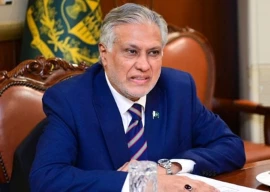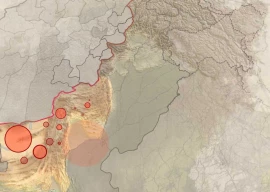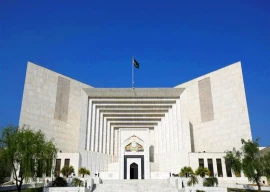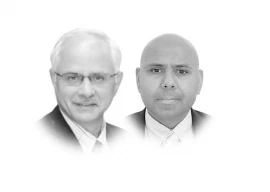
Threats were made and protests held against Taseer after he visited Aasia Bibi, a Christian woman who was sentenced to death for committing blasphemy, and expressed his support for her.
The late governor has joined a list of many who have been killed because of the country’s blasphemy law - including those that have been convicted or suspected of allegedly committing blasphemy.
According to data compiled by the National Commission for Justice and Peace, extrajudicial killings of at least 34 people accused and convicted under the blasphemy law have taken place since 1990. In 1997, Lahore High Court judge Arif Iqbal Bhatti, who had acquitted two Christians accused of blasphemy in 1995, was shot dead as he left the court.
Many accused of blasphemy have been killed by mobs or extremists. Akin to Taseer’s assassination by a member of the Elite Force squad, several accused of blasphemy have also been killed by security officials or while in jail.
A timeline compiled by the Jinnah Institute (JI) shows a pattern of blasphemy accused killed by officials who took the law into their own hands.
According to JI’s report, Samuel Masih, 27, who was accused of blasphemy, was attacked by a police constable armed with a brick cutter in 2004 in Lahore. In 2002, Mohammad Asghar was fired on by a police constable while being arrested in Noshehra Wirka. In 2007, an assistant sub-inspector killed a man accused of blasphemy in Lahore’s Mandi Bahauddin area. In 2009, a police constable in Gujrat opened fire on three people accused and detained under the blasphemy law – Mian Qasim Ansari, Irfan Naeem and Ghafoor Aslam. Ansari was killed and Naeem was injured. Activist groups have also alleged that the accused have been tortured in police custody.
In 1998, Bishop John Joseph killed himself in front of a court in Sahiwal, which had convicted a Christian man called Ayub Masih of blasphemy to draw attention to Masih’s case.
The law has been used to cast a wider net. Religious groups have threatened those accused of blasphemy and vociferously campaigned against any amendments to the law as well as people such as Taseer who voiced criticism of the legislation. Several religious groups have condoned Taseer’s assassination.
Pakistan Peoples Party member Sherry Rehman, who introduced a bill in the National Assembly proposing amendments to the blasphemy laws, was threatened against doing so by the Jamiat Ulema-e-Pakistan.
Activists have also been targeted. Pakistan Christian Congress president and activist Nazir Bhatti was forced to flee abroad after leading a protest in 1997 against the burning of a village housing Christians in Shanti Nagar in Khanewal, Punjab. Twenty-one cases – including charges of blasphemy and murder - were filed against Bhatti when the protest turned ugly. The protesters were reportedly fired at, tear gassed and baton charged by the police. One person was killed and three injured.
A Christian human rights activist, Hector Aleem, was arrested in 2009 in Islamabad on blasphemy charges, after a member of the Sunni Tehreek alleged he had sent a blasphemous text message.
The Frontier Post newspaper also became a target of the blasphemy law in 2001, when seven of its staffers, including the managing editor, were booked under section 295-C for allegedly publishing a blasphemous letter. The newspaper’s office was set on fire and protests against it were held in Peshawar. One of the Post’s sub-editors, Munawar Mohsin, was sentenced to life imprisonment and fined Rs50,000.
In the wake of Taseer’s assassination, it remains to be seen whether those accused and tried under the controversial law, such as Aasia Bibi, will find another vocal supporter.
Published in The Express Tribune, January 6th, 2011.









1728386780-0/BeFunky-collage-(38)1728386780-0-270x192.webp)








COMMENTS
Comments are moderated and generally will be posted if they are on-topic and not abusive.
For more information, please see our Comments FAQ